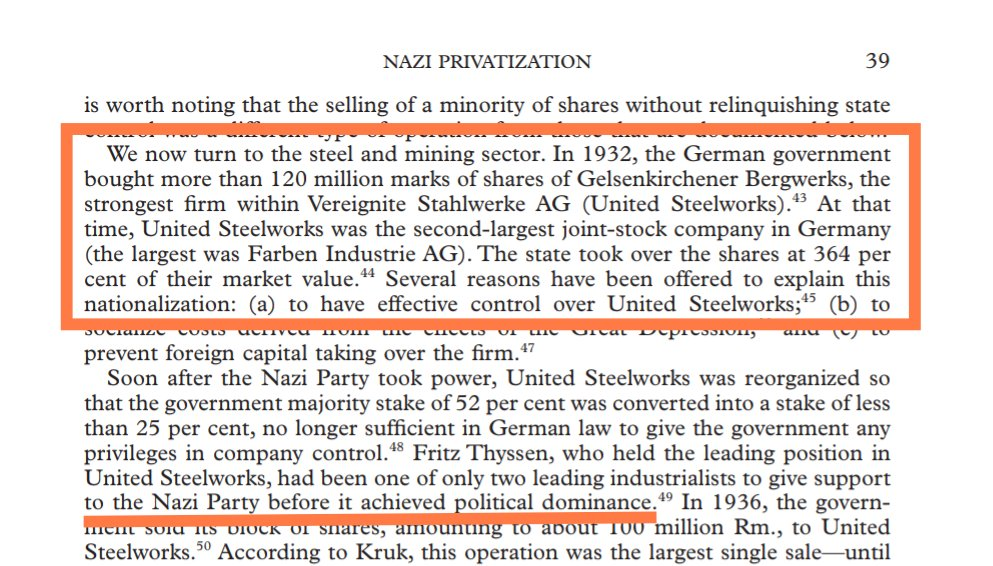A research study was conducted by the University of Barcelona which analyzed German newspapers, media outlets and government documents from 1933 when the Nazis took power all the way to 1941.

The University found that the Nazis engaged in heavy privatization of the economy and removed a lot of the public utilities and ownership that was seen under the Weimar Republic prior to the Nazis taking power.
 |
| From Adam Tooze, The Wages of Destruction: The Making and Breaking of the Nazi Economy. |
This proposal was related to the Nazi government's support for returning the ownership of urban transportation back to the private sector. Several months later, Hans Baumgarten analyzed the conditions required for the re-privatization in the German banking sector.
Discussion of privatization was increasingly common soon after the Nazi government took office early in 1933,and privatizations soon followed.
Steel and mining: In 1932, the German government bought more than 120 million marks of shares in Gelsenkirchen Bergbau (Gelsenkirchen Mining Company), the strongest firm inside the Vereinigte Stahlwerke A.G. (United Steelworks). At that time, the United Steel Trust was the second largest joint-stock company in Germany (the largest was Farben Industrie A.G.). The state took over the shares at 364 percent of their market value.
Soon after the Nazi party came to power. United Steel was reorganized so that the government majority stake of 52 per cent was converted into a stake of less than 25 per cent, no longer sufficient in German law to give the government any privileges in company control. Fritz Thyssen, who held the leading position in the Trust, had been one of only two big industrialists to give support to the Nazi Party before it won political dominance.In 1938, the Government sold its block of shares, amounting to about Rm. 100 million, to the United Steel Association. The company Vereinigte Oberschlesische Hüttenwerke AG had control of all metal production in the Upper Silesian coal and steel industry.
Banking: Before the crash of 1929, publicly owned commercial banks accounted for at least 40 per cent of the total assets of all banks, and one of the five big commercial banks, the Reichs-Kredit-Gesellschaft, was publicly owned. The state was involved in the reorganization of the sector after the bank crash in 1931 with an investment of about Rm. 500 million, and most of the big banks came under state control. Estimates made before the Banking Inquiry Committee in 1934 by Hjalmar Schacht, president of the Reichsbank and Minister of Economy, stated that around 70 per cent of all German corporate banks were controlled by the Reich.
Through the Reich, the government owned significant stakes in the largest banks: 38.5 percent of Deutsche Bank, 71 percent of the Commerz-Bank and 97 per cent of the capital of Dresdner-Bank. The Commerz-Bank was re-privatized through several share sales in 1936-37.The Nazi regime completely transferred public ownership to the private sector. The extensive list of privatizations that are discussed above makes it clear that selling public ownership was an important policy in Nazi Germany.








Comments
Post a Comment